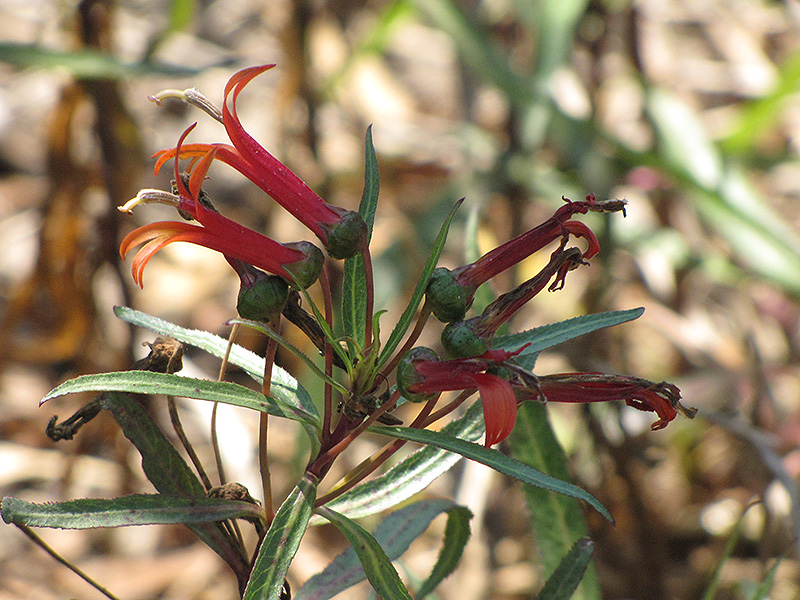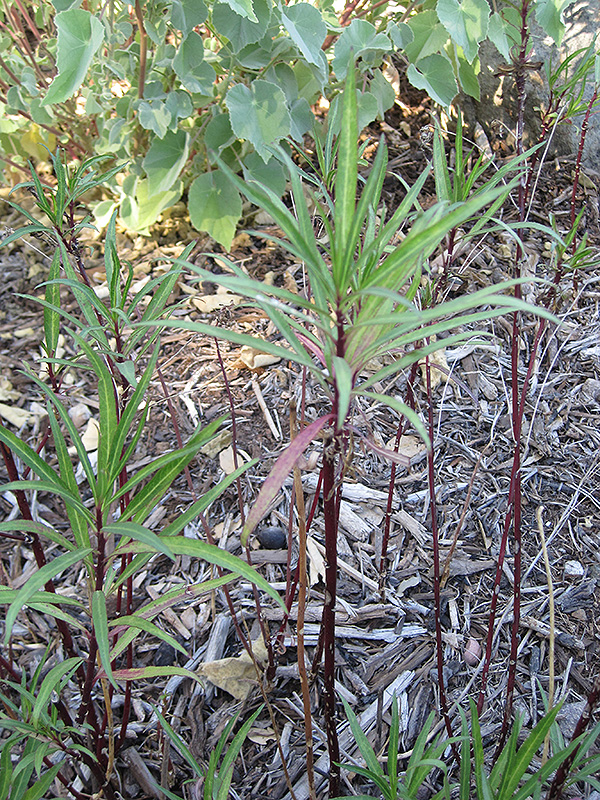>> Home
Height: 24 inches
Spread: 5 feet
Sunlight:
![]()
![]()
Hardiness Zone: (annual)
Other Names: Mexican Bush Lobelia
Description:
This attractive, spreading variety has bright red and yellow flower spikes that rise on dark red stems, above narrow green foliage; excellent in the garden or containers; use as a fine textured groundcover in sun or light shade
Ornamental Features
Mexican Cardinal Flower features showy spikes of red tubular flowers with buttery yellow throats rising above the foliage from early summer to mid fall, which emerge from distinctive dark red flower buds. The flowers are excellent for cutting. Its narrow leaves remain green in color with pointy creamy white spines throughout the season.
Landscape Attributes
Mexican Cardinal Flower is an herbaceous annual with a ground-hugging habit of growth. Its relatively fine texture sets it apart from other garden plants with less refined foliage.
This is a relatively low maintenance plant, and is best cleaned up in early spring before it resumes active growth for the season. It is a good choice for attracting butterflies and hummingbirds to your yard. Gardeners should be aware of the following characteristic(s) that may warrant special consideration;
- Suckering
Mexican Cardinal Flower is recommended for the following landscape applications;
- Mass Planting
- General Garden Use
Planting & Growing
Mexican Cardinal Flower will grow to be about 24 inches tall at maturity, with a spread of 5 feet. Although it's not a true annual, this fast-growing plant can be expected to behave as an annual in our climate if left outdoors over the winter, usually needing replacement the following year. As such, gardeners should take into consideration that it will perform differently than it would in its native habitat.
This plant does best in full sun to partial shade. It prefers to grow in average to moist conditions, and shouldn't be allowed to dry out. It is not particular as to soil pH, but grows best in rich soils. It is somewhat tolerant of urban pollution. This species is not originally from North America, and parts of it are known to be toxic to humans and animals, so care should be exercised in planting it around children and pets. It can be propagated by division.

